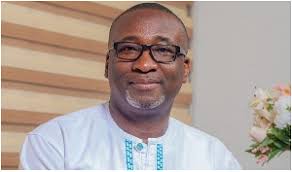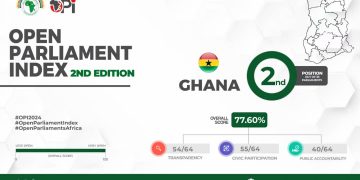Economist Outlines Three-Pronged Strategy to Anchor Ghana’s Fiscal Reforms
Ghana’s economic recovery efforts must be grounded in structural reforms that bridge the gap between policy design and implementation, according to financial economist and Investbankpreneur Dr Bernard Tetteh Dumanya.
Speaking during an X Space discussion hosted by NorvanReports and the Economic Governance Platform (EGP), on the topic, “Cedi’s Comeback, Debt Reversal & Fiscal Hope: A Genuine Reset or Temporary Relief?”, Dr Dumanya outlined a three-pronged strategy for delivering long-term fiscal sustainability, while warning that Ghana’s current approach risks falling short without institutional innovation and capacity-building.
“The three things I would do are simple but critical,” said Dr Dumanya. “First, reform domestic resource mobilisation through tax reforms, digitisation, and stronger accountability in state-owned enterprises.”
His remarks come in the wake of the 2025 Mid-Year Budget Review presented by Finance Minister Dr Cassiel Ato Forson, which prioritised expenditure consolidation and revenue generation. However, analysts say enforcement challenges continue to undermine fiscal targets, particularly in payroll management and tax compliance.
The Ghana Audit Service recently reported that over 53,000 separated public sector workers remained on the payroll, raising concerns over revenue leakage and the effectiveness of internal controls. Dr Dumanya argued that strengthening verification systems could curb such abuses and help improve revenue performance.
Export-Led Growth and Industrialisation
The second pillar of Dr Dumanya’s proposal is the pursuit of export-led productive growth, with an emphasis on industrial value addition.
He expressed optimism about the government’s 24-hour economy policy framework, which aims to drive production and employment across sectors, but cautioned that effective implementation remains elusive.
“We know the solutions. The challenge is closing the gap between theory and practice,” he said. “Innovation in policy execution is what’s missing.”
While the government has outlined initiatives in agriculture, manufacturing, and value chain development, experts continue to flag weak linkages between policy ambition and on-the-ground outcomes.
Mobilising Human Capital and Climate Finance
Dr Dumanya’s third priority is investment in human capital and social infrastructure. He stressed the importance of education, health, and youth funding, not only as development goals but as enablers of climate resilience and economic inclusion.
Highlighting global financing opportunities, he noted that institutions such as the European Investment Bank have earmarked vast sums for climate-related initiatives, but African countries, including Ghana, often lack the technical expertise to access them.
“There is over $1 trillion available globally for climate finance,” he noted. “But we are not writing bankable proposals to unlock that funding. We need to train teams within the Ministry of Finance and Bank of Ghana to close this skills gap.”
He cited the fight against illegal mining, or galamsey, as a policy area that could benefit significantly from climate funding if strategic proposals are developed.
A Cautious Outlook
The 2025 Mid-Year Budget Review projected improved macroeconomic indicators, supported by an IMF-backed programme and ongoing debt restructuring. Yet concerns persist over the durability of the recovery.
Dr Dumanya’s intervention underscores growing calls for a policy reset that moves beyond short-term stabilisation to address deeper institutional and structural deficiencies in Ghana’s public finance system.
“The solutions are not unknown,” he said. “But without bold reforms and stronger implementation frameworks, we risk repeating the same cycle of fiscal distress.”








